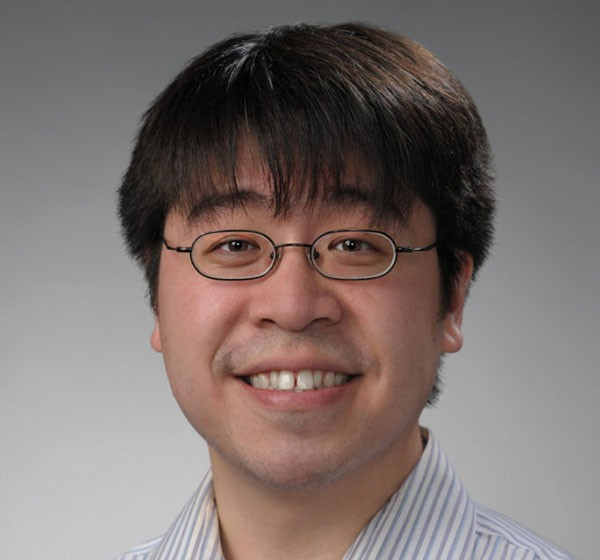Course Overview
Global healthcare is confronted with overarching opportunities and challenges created by emerging pandemic threats, digital therapeutics, growing demand from consumers and aging population. The delivery of health information and services is no longer tied to traditional “brick and mortar” hospitals and clinics, but through digital diagnostics, personalized medicine, and medical informatics.
This STEM course will follow an unconventional path to look at biology through the lens of mathematics and programming. You will be introduced to Python programming as a tool to understand different facets of biology, from molecules, cells, tissues, organs, whole body to the public health arena.
All students who successfully complete the course will receive a Certificate of Completion and have the opportunity to request a Syracuse University noncredit transcript.
Learning Objectives
Upon successful completion of this course, students will be able to:
- Demonstrate an understanding of basic Python programming
- Apply quantitative techniques to the analysis and modeling of biological systems
- Appreciate basic and core concepts in bioinformance
- Write programs in Python to solve problems in biology
Course Information
Course Prefix and Number: SCN 207
Format: Online
Eligibility: Students must be of rising high school sophomore, junior, or senior status – or a 2025 high school graduate.
Credit: Noncredit
Grading: Pass/Fail
Cost: $1,995
Program rates are subject to change and will be approved by the board of trustees. Discounts and scholarships are also available.
Program Information
Summer College – Online: Explore college life before stepping foot on campus! High school students can enroll in a college-level course, pursue their academic interests, and meet likeminded students in daily virtual events and activities.
Course Dates and Details
| Program | Course Dates | Synchronous Class Time (Eastern Time) | Credit/Noncredit |
|---|---|---|---|
| Summer College – Online | 3-Week Session I: Monday, July 7 – Friday, July 7, 2025 | MTWThF; 5 – 7 p.m. | Noncredit |
To see if this course is ‘open,’ refer to the full course catalog.
Course Requirements
Eligibility Requirements
Applicants should have completed at least one introductory course in either biology, programming, or a related STEM field. Basic familiarity with computer operations and the internet, given the online nature of the course.
Technology Requirements
- A modern laptop or desktop computer
- A stable internet connection
- A working webcam and microphone
- A space conducive to taking an online class (without distractions)
Typical Day
Tentative Schedule
Students must attend live synchronous online sessions Monday through Thursday, from 5 to 7 p.m. EST.
We are using Python to introduce various topics in biology. Python will be used as a tool to shed more light into the interface between engineering and biology. This project-based course is divided into 4 modules:
- Module 1: Introduction to Python programming using Jupyter Notebook
- Module 2: Data Sciences in Biology (how to organize, plot and visualize biological data)
- Module 3: Bioinformatics: How to mine data from DNA, RNA and protein sequences
- Module 4: Signal and Image Processing: Basic signal analysis (vital signals, e.g., ECG, EEG) and image processing (e.g., X-ray)
When class is over, and on weekends, students can look forward to various Summer College virtual activities to meet and connect with other students across the world. Check out our Virtual Campus Experience page for more information!
Faculty Bios
Douglas Yung – Associate Teaching Professor, Bioengineering, College of Engineering & Computer Science

Douglas Yung is an Associate Teaching Professor in the Department of Biomedical and Chemical Engineering at Syracuse University and serves as the Director for the Bioengineering undergraduate program. He completed his B.S. in electrical engineering and mathematics at UCLA in 2003 and later pursued a Ph.D. in bioengineering from Caltech in 2008. Following this, he spent time at the Jet Propulsion Laboratory in California as a NASA Postdoctoral Fellow, working on sensor development, microfluidics, and bacterial spore viability. In 2009, he joined the Department of Electronic Engineering at the Chinese University of Hong Kong as an Assistant Professor.
Prof. Yung is not just a distinguished academic but a visionary biomedical engineer. He is known for fostering expansive collaborations that bridge the gaps between academia, industry, hospitals, and communities on a grand scale. His intrigue lies at the intersection of microbes and engineering tools, particularly on a micro- and nano-scale. He is actively pioneering techniques to evaluate the resilience of superbugs and derive energy from extremophiles, merging electrochemical and optical techniques with MEMS devices. Over the past 12 years, he has championed more than 20 STEM outreach programs, impacting over 500 K-12 students. His contributions to education have been lauded with awards, including the College Educator of the Year by the Technology Alliance of Central New York (TACNY). A staunch advocate for hybrid teaching, Prof. Yung promotes a holistic learning environment rich in hands-on projects, experiential activities, and peer collaboration, a marked shift from conventional pedagogies.
